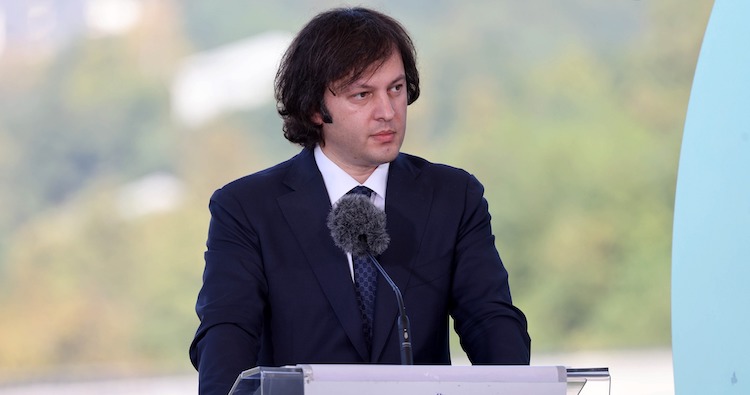Georgian PM: Batumi bypass road part of “strategic” European road route, “important” for development of city

Georgian Prime Minister Irakli Kobakhidze on Friday emphasised the significance of a newly opened, 14-km Batumi bypass road circumventing the capital of the western Adjara region, saying it was part of a “strategic European road route” and expected to play a “crucial role” in the development of the city.
Georgian Prime Minister Irakli Kobakhidze on Friday emphasised the significance of a newly opened, 14-km Batumi bypass road circumventing the capital of the western Adjara region, saying it was part of a “strategic European road route” and expected to play a “crucial role” in the development of the city.
Speaking at the opening ceremony earlier today, the Prime Minister said the new road would divert transit traffic away from Batumi, contributing to relieving the city from congestion.
Batumi is recognised by several authoritative organisations as a rapidly growing tourist destination in Europe and the best place for investments. It is a city of four seasons and has been honoured with the ‘Oscar of tourism’. All of this indicates the city is continuously developing, with the Government providing the necessary support and intending to continue doing so in the future. Another testament to this progress is the opening of [this road] today”, he said.
The bypass, spanning from Makhinjauri to Khelvachauri and connected to surrounding settlements and districts of Batumi, is expected to completely alleviate traffic congestion in the city. With an estimated 43 percent of traffic diverted from the old road to the bypass, it is anticipated that living and leisure conditions in Batumi will improve, along with an increase in road capacity and transit cargo turnover”, Kobakhidze added.
He said the Batumi bypass was a part of the “West-East European route” starting in Spain before crossing France, Italy, Slovenia, Croatia, Serbia, Romania, Bulgaria and Turkey, and ending in Georgia.
The Prime Minister said one of the Government’s “main tasks” was to strengthen the country’s connectivity and develop its transit function.
We have already made significant progress towards this goal. We are proud to report that 355 km of highways are currently used by road transport in Georgia, 287 km of which have been built under our Government since 2012”, Kobakhidze said.
Next year, it will be possible to travel from [the capital city of] Tbilisi to Batumi entirely by highway. To develop this road corridor, we are commencing the construction of the Batumi-Sarpi road, which will bypass three more resort settlements - Gonio, Kvariati, and Sarpi”, he said.
The construction of an additional two-lane section of the Kobuleti bypass road will also begin. Ultimately, Tbilisi and Batumi will be connected by a four-lane highway. Already next year, it will take only three hours to travel from Batumi to Tbilisi, which is important for improving mobility, developing regions, the Ajara region, and tourism”, the Prime Minister added.
Kobakhidze emphasised the Government’s “significant efforts” were directed towards the development of international road corridors.
Georgia’s role in the Middle Corridor is crucial in a geopolitically sensitive region. As a stable country, Georgia is seen as a reliable partner and is attractive to investors. Our team is dedicated to developing international road corridors, and we will continue these efforts in the future”, he said.
This year alone, we plan to open 90 km of the main road, and with the opening of the Batumi bypass road, we will have fulfilled 82 percent of this plan, as 74 km of the main road will already be used by transport”, the head of the Government added.
The Prime Minister thanked the Asian Development Bank and the Asian Infrastructure Investment Bank for supporting the project, along with Infrastructure Minister Irakli Karseladze and his team, companies and professionals involved in the project.
He also thanked the regional Government of Adjara for their support to “all initiatives” of the central Government and their “successful efforts” in developing the region.
 Tweet
Tweet  Share
Share